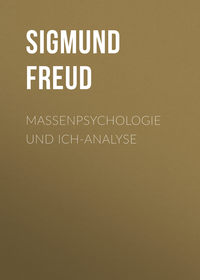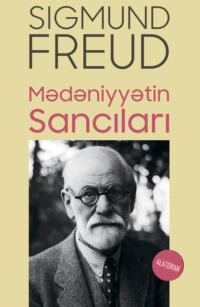 полная версия
полная версияDream Psychology: Psychoanalysis for Beginners
2
It is worthy of remark that eminent philologists maintain that the oldest languages used the same word for expressing quite general antitheses. In C. Abel's essay, "Ueber den Gegensinn der Urworter" (1884, the following examples of such words in England are given: "gleam – gloom"; "to lock – loch"; "down – The Downs"; "to step – to stop." In his essay on "The Origin of Language" ("Linguistic Essays," p. 240), Abel says: "When the Englishman says 'without,' is not his judgment based upon the comparative juxtaposition of two opposites, 'with' and 'out'; 'with' itself originally meant 'without,' as may still be seen in 'withdraw.' 'Bid' includes the opposite sense of giving and of proffering." Abel, "The English Verbs of Command," "Linguistic Essays," p. 104; see also Freud, "Ueber den Gegensinn der Urworte"; Jahrbuch für Psychoanalytische und Psychopathologische Forschungen, Band II., part i., p. 179). – TRANSLATOR.
3
Freud, "Three Contributions to Sexual Theory," translated by A.A. Brill (Journal of Nervous and Mental Disease Publishing Company, New York).
4
The words from "and" to "channels" in the next sentence is a short summary of the passage in the original. As this book will be read by other than professional people the passage has not been translated, in deference to English opinion. – TRANSLATOR.
5
To sit for the painter. Goethe: "And if he has no backside, how can the nobleman sit?"
6
I myself regret the introduction of such passages from the psychopathology of hysteria, which, because of their fragmentary representation and of being torn from all connection with the subject, cannot have a very enlightening influence. If these passages are capable of throwing light upon the intimate relations between the dream and the psychoneuroses, they have served the purpose for which I have taken them up.
7
Something like the smoked salmon in the dream of the deferred supper.
8
It often happens that a dream is told incompletely, and that a recollection of the omitted portions appear only in the course of the analysis. These portions subsequently fitted in, regularly furnish the key to the interpretation. Cf. below, about forgetting in dreams.
9
Similar "counter wish-dreams" have been repeatedly reported to me within the last few years by my pupils who thus reacted to their first encounter with the "wish theory of the dream."
10
See Selected Papers on Hysteria and other Psychoneuroses, p. 133, translated by A.A. Brill, Journal of Nervous and Mental Diseases, Monograph Series.
11
It is only of late that I have learned to value the significance of fancies and unconscious thoughts about life in the womb. They contain the explanation of the curious fear felt by so many people of being buried alive, as well as the profoundest unconscious reason for the belief in a life after death which represents nothing but a projection into the future of this mysterious life before birth. The act of birth, moreover, is the first experience with fear, and is thus the source and model of the emotion of fear.
12
Cf. Zentralblatt für psychoanalyse, I.
13
Or chapel – vagina.
14
Symbol of coitus.
15
Mons veneris.
16
Crines pubis.
17
Demons in cloaks and capucines are, according to the explanation of a man versed in the subject, of a phallic nature.
18
The two halves of the scrotum.
19
See Zentralblatt für Psychoanalyse, vol. i., p. 2.
20
They share this character of indestructibility with all psychic acts that are really unconscious – that is, with psychic acts belonging to the system of the unconscious only. These paths are constantly open and never fall into disuse; they conduct the discharge of the exciting process as often as it becomes endowed with unconscious excitement To speak metaphorically they suffer the same form of annihilation as the shades of the lower region in the Odyssey, who awoke to new life the moment they drank blood. The processes depending on the foreconscious system are destructible in a different way. The psychotherapy of the neuroses is based on this difference.
21
Le Lorrain justly extols the wish-fulfilment of the dream: "Sans fatigue sérieuse, sans être obligé de recourir à cette lutte opinâtre et longue qui use et corrode les jouissances poursuivies."
22
This idea has been borrowed from The Theory of Sleep by Liébault, who revived hypnotic investigation in our days. (Du Sommeil provoqué, etc.; Paris, 1889.)
23
Cf. the significant observations by J. Bueuer in our Studies on Hysteria, 1895, and 2nd ed. 1909.
24
Here, as in other places, there are gaps in the treatment of the subject, which I have left intentionally, because to fill them up would require on the one hand too great effort, and on the other hand an extensive reference to material that is foreign to the dream. Thus I have avoided stating whether I connect with the word "suppressed" another sense than with the word "repressed." It has been made clear only that the latter emphasizes more than the former the relation to the unconscious. I have not entered into the cognate problem why the dream thoughts also experience distortion by the censor when they abandon the progressive continuation to consciousness and choose the path of regression. I have been above all anxious to awaken an interest in the problems to which the further analysis of the dreamwork leads and to indicate the other themes which meet these on the way. It was not always easy to decide just where the pursuit should be discontinued. That I have not treated exhaustively the part played in the dream by the psychosexual life and have avoided the interpretation of dreams of an obvious sexual content is due to a special reason which may not come up to the reader's expectation. To be sure, it is very far from my ideas and the principles expressed by me in neuropathology to regard the sexual life as a "pudendum" which should be left unconsidered by the physician and the scientific investigator. I also consider ludicrous the moral indignation which prompted the translator of Artemidoros of Daldis to keep from the reader's knowledge the chapter on sexual dreams contained in the Symbolism of the Dreams. As for myself, I have been actuated solely by the conviction that in the explanation of sexual dreams I should be bound to entangle myself deeply in the still unexplained problems of perversion and bisexuality; and for that reason I have reserved this material for another connection.









